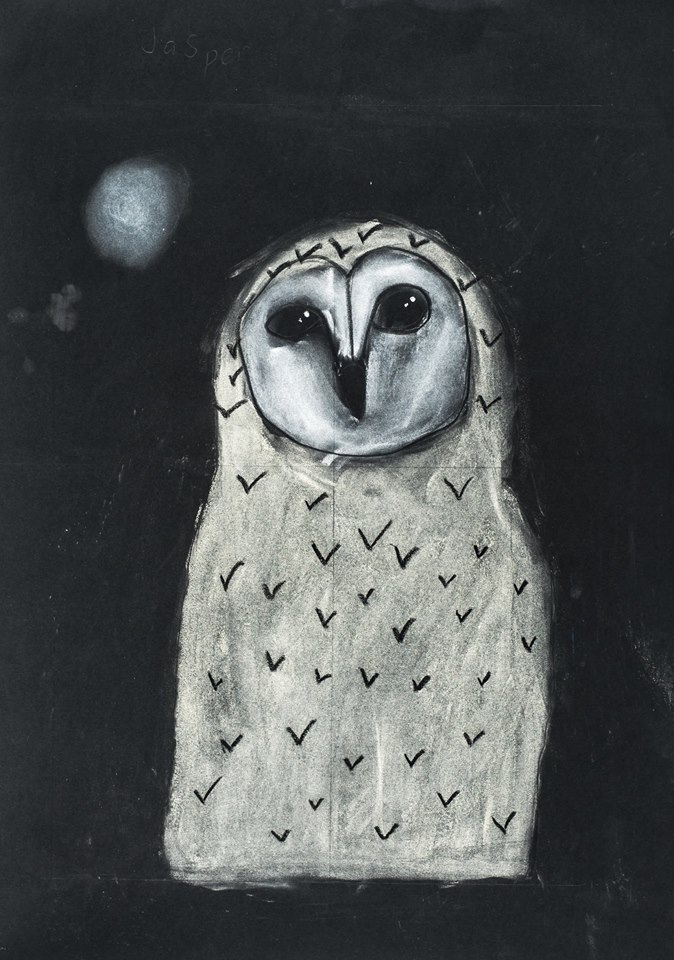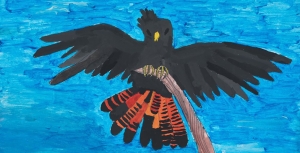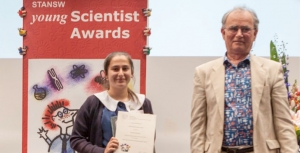Displaying items by tag: grants
Other Funding Opportunities
Other Funding Opportunities
We are prepared to consider funding projects up to $5000.
Research grants
Research grants are available to researchers (other than honours, masters and PhD students) who are studying any aspect of urban bushland in the Sydney region – to apply, complete this application form.
2023 Vanessa McPherson, Fungal Biodiversity: Diversity, Distribution and DNA
Education grants
Education grants are available to primary and high schools children for projects that promote awareness of the value of urban bushland, educate students or the community on how to minimise their impact on urban bushland, or restore a natural habitat – to apply, complete this application form.
| 2023 | Gibberagong Environmental Education Centre to run a biodiversity student camp at Muogamarra Nature Reserve |
| 2019 | Children’s Threatened Species Art Competition |
| 2018 | Children’s Threatened Species Art Competition |
| 2017 | Children’s Threatened Species Art Competition |
| 2009 | To raise awareness of climate change we supported an educational event to support International Day of Climate Action |
| 2008 | Turramurra High School for environmental school ground projects |
| 2007 | Warrawee Primary School for bushland maintenance |
| 2006 | St Ives Park Primary School for development of a bushland area |
| 2003 | Warrawee Primary School to implemented a program to increase student appreciation and awareness of native tress Ku-ring-gai Creative Arts High School to restore native bushland by removing the invading exotic Agapanthus and replanting with local species |
| 2002 | Turramurra North Primary School to plant native trees Pymble Primary School to establish a worm farm |
| 2001 | Turramurra Primary School for weed education Warrawee Primary School for the creation of native gardens |
Young Scientist
Young Scientist
To encourage and reward research and education on environmental issues, STEP has aligned with Young Scientist and each year we donate a prize of $250 for the best environmental project. The competition is organised by the Science Teachers Association of New South Wales and is open to students from kindergarten to year 12.
| 2024 | Beatrix Farley (Loreto Kirribilli) Investigation into the change in microplastic abundance along the eastern coast of Australia from 2018 to 2024 |
| 2023 | Isabelle Fisher (Roseville College) Investigating the effects of an established arbuscular mycorrhizal network on seed germination and seedling growth for Acacia linifolia and Acacia ulicifolia |
| 2022 | Lily Rofail (PLC Sydney) Water Hyssop (Bacopa monnieri) and Avocado Skin Powder can Alter the Amount of Heavy Metals in Aquatic Environments |
| 2021 | Chloe LeMap (PLC Sydney) Cool the Sand, Save the Sea Turtles |
| 2020 | Maja Dalby-Ball Olson (Barrenjoey High School) Variation in Flammability in the Flora in the Sydney Sandstone Vegetation Community |
| 2019 | Suzanne Jones (Redeemer Baptist School) The Call of the Wild: A Phrenological Study of Circadas in Lake Parramatta Reserve |
| 2018 | Beatrix Farley (Castle Cove Public School) Are there Microplastics on the Beaches of Australia’s East Coast? |
| 2017 | Evette Khaziran (Redeemer Baptist School) Give me a Home among the Gum Trees |
| 2016 | Jade Moxey (Sapphire Coast Anglican College) Grazing Sheep on Deadly Fireweed: A BaaaaD Situation? |
| 2015 | Jade Moxey (Sapphire Coast Anglican College) The Spread of Seeds through Cattle |
| 2014 | Nicole Sung (PLC Sydney) Recycling of Grey Water |
| 2013 | Aiden Giragossian (Barker College) Biofuel: Ethanol towards a Greener and Secure Energy Future |
| 2012 | Daniel Dell’Armi (De La Salle Revesby Heights) Is the Dye-pigment Solar Cell the Solution to our Scarce Amount of Renewable Energy Sources? Highly commended Aoife Hogan (Hills Grammar School): Miscanthus – Fuel of the Future? |
| 2011 | Hilary Knowles (Chevalier College) What is the Best Method of Filtering Pond Water to Make it Drinkable? |
| 2010 | Meena Sritharan (Strathfield Girls High School) How to Clean Up an Oil Spill: Does the Water Temperature of the Ocean Affect the Time to Clean up an Oil Spill? |
| 2009 | Rebecca Dawkins (Sydney Girls High School) Effect of Colour and Roofing Material on House Temperature |
| 2008 | Sam Wightman (Mullumbimby High School) Acidic Rain Water from Acid Sulphate Soils Highly commended Jessica Dunn (Bowral High School) Do Willows Affect the Quality of Water in Rivers? |
| 2007 | Nina Pinto (Hornsby Girls High School) The Habitat of the Marine Snail, Nerita atramentosa, and the Tenacity of its Foot in Various Salinities Highly commended Ellenore Forrester (Redeemer Baptist School, Parramatta) for her excellent research into an Enviropump |
| 2006 | Robbie Bishop-Taylor (Great Lakes College, Forster Campus) The Identification of Critical Salinity Thresholds for Upper Estuarine Plants |
| 2005 | Laura Woollacott An Investigation into the Pollution Stopper and its Effects on the Water Quality of Moores Creek |
| 2004 | Daniel Tracey (Barker College) Analysing the Effects of Different Types of Grey Water on Plants Highly commended David Llewellyn (Great Lakes College) Investigating the Effect of Riparian Weeds on Stream Invertebrates |
| 2003 | Andrew Stewart (Karabar Distance Education Centre) Artificial Wetlands: Can Carex appressa Prevent Eutrophication in Australian Waterways? |
| 2002 | Gregory Howe (Fort Street High School) Feral Fish: Is the Plague Minnow in the Myall River System? |
| 2001 | Lui Weber (Wollumbin High School) conducted a survey on the endangered red-fruited ebony, Diospyros mabacea |
Research Grant for the Conservation of Bushland
Research Grant for the Conservation of Bushland
Applications for the 2025 research grant of $2500 are welcomed from honours, masters and PhD students. To apply, complete this application form electronically, save it and email it to This email address is being protected from spambots. You need JavaScript enabled to view it. by 31 March 2025. We will announce the winner by 30 April 2025.
2024 Solomon Maerowitz-McMahan (Hawkesbury Institute for the Environment, Western Sydney University, PhD) Exploring Mycorrhizal Resilience: Insights from Post-hazard Reduction Burns in Ku-ring-gai Chase Forests
2023 Margarita Gil-Fernández (Macquarie University, PhD) Mycorrhizal Fungal Diversity Associated with Small Mammals in Response to Anthropogenic Disturbance
2022 Chantelle Doyle (UNSW, PhD) Ecology of the Critically Endangered Hibbertia spanantha
2021 Erin Rogers (Hawkesbury Institute for the Environment, Western Sydney University, Master of Research) Phosphorus Liberation on Low Fertility Soils with Fire: How does it Affect the Re-growth Capacity of Native Plants?
2020 Ruby Paroissien (UNSW, honours) Impact of Changes in Fire Seasonality on the Reproductive Success of the Post-fire Flowering Species, Doryanthes excelsa
Postscript
Ruby's research was published in Environmental and Experimental Botany, vol 192, Dec 2021, 104634. You can also download a PDF of the paper, Effects of fire season on the reproductive success of the post-fire flowerer Doryanthes excelsa.
2019 Gabriella Hoban (UNSW, honours) Soil Characteristics as Indicators of Restoration Trajectories in Urban Woodlands
2018 Katie Rolls (Hawkesbury Institute for the Environment, Western Sydney University, PhD) Adaptive Capacity of Widespread and Threatened Acacia Species to Climate Change
Threatened Species Children’s Art Competition
 This year, for the first time, STEP supported a great initiative organised by Forestmedia, an organisation that is aiming to increase community awareness of the plight of our threatened species and help to develop the next generation of environmental leaders.
This year, for the first time, STEP supported a great initiative organised by Forestmedia, an organisation that is aiming to increase community awareness of the plight of our threatened species and help to develop the next generation of environmental leaders.
Long-time STEP member and artist, Yvonne Langshaw, helped judge the winners which were announced on 7 September, Threatened Species Day, at NSW Parliament House.
The competition was very well organised and a great success. The fabulous entries were displayed in Surry Hills, the Botanic Gardens and Canberra.
Jake Ferguson won best written work for the summary below:
When I think of a Corrobboree I don't think of a frog. I think of dancing around on the land. But I guess that’s what a frog does. So I chose this frog because it’s native to our land and it has bright yellow Australian colours of our land. Australia's Southern Tablelands and waterways are very important to the life of this frog. Let’s look after them so the frog can keep dancing.

Young Scientist Award 2017
STEP continues to sponsor an award for a project about an environmental issue under the Science Teachers’ Association Young Scientist Awards.
It was a difficult decision this year with some innovative and well thought out projects. The winner was Evette Khaziran, year 10, from Redeemer Baptist School, North Parramatta. Her project on the use of nest boxes by sugar gliders was the nearest to STEP's urban bushland focus and philosophy. Not only that, the work was well thought out and innovative with patient field observation and an outcome that could be applied to bushland areas all round metropolitan Sydney and beyond.
Young Scientist Award 2015
The Science Teachers’ Association of NSW conducts a program to assist students and their teachers to carry out scientific investigations. Since 1992 an annual award program has provided prizes for the outstanding projects. STEP sponsors an award for a project relating to an environmental issue.
Grants
Grants
We fund research and environmental education using funds from sales of our publications and donations and bequests made to our Environmental Protection Fund. Contact us to discuss how we could help you.
Research Grant for the Conservation of Bushland
Applications for this annual grant of $2500 are welcomed from honours, masters and PhD students. The project must contribute to the knowledge that will assist the conservation of bushland in the Sydney region, e.g. flora and fauna studies, biodiversity, and management issues such as chemical pollution, weed invasion, erosion control and controlled burns. Click here for more information.
Young Scientist
STEP has aligned with Young Scientist and each year we award a prize of $250 for the best environmental project. The competition is organised by the Science Teachers' Association of New South Wales and is open to students from kindergarten to year 12. Click here for more information.
Other Funding Opportunities
We are prepared to consider funding projects up to $5000:
- to researchers (other than honours, masters and PhD students) who are studying any aspect of urban bushland in the Sydney region
- to schools for projects that promote awareness of the value of urban bushland, educate students or the community on how to minimise their impact on urban bushland, or restore a natural habitat
Click here for more information.


